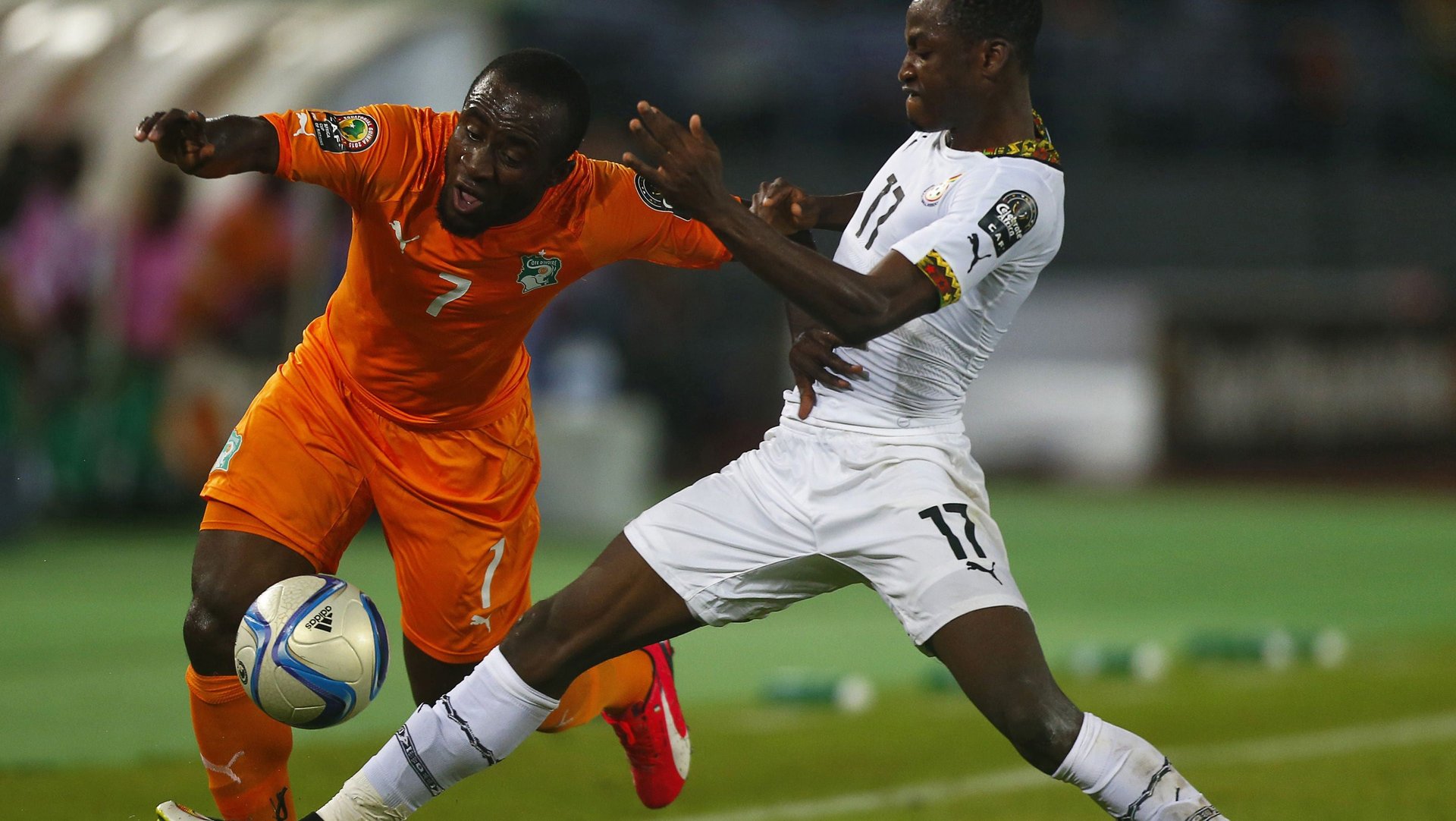Africa’s soccer chiefs can’t decide which Arab prince to vote as FIFA president
On Friday (Feb. 5), the executive committee of the Confederation of African Football (CAF) decided to nominate Sheikh Salman of Bahrain as its choice for FIFA president in the Feb. 26 elections. Typically, such a nomination by CAF suggests that the continent’s 54 bloc votes, the most in any region, would go to Sheikh Salman, thus giving him the edge over his other opponents, including South Africa’s Tokyo Sexwale.


On Friday (Feb. 5), the executive committee of the Confederation of African Football (CAF) decided to nominate Sheikh Salman of Bahrain as its choice for FIFA president in the Feb. 26 elections. Typically, such a nomination by CAF suggests that the continent’s 54 bloc votes, the most in any region, would go to Sheikh Salman, thus giving him the edge over his other opponents, including South Africa’s Tokyo Sexwale.
As it turns out, that may not be the case.
Musa Bility, chairman of the Liberian Football Association (FA) has stated that the country’s vote will not be going to Sheikh Salman, a member of the Bahrain royal family—as requested by CAF. Instead, it will go to Prince Ali of Jordan. By itself, Liberia’s opposition to CAF’s instructions might not pose a threat to Salman getting the bulk of African votes but Bility, who himself declared to run for the office before he was deemed ineligible, says that Liberia will not stand alone against CAF.
“I have been in contact with 26 African FA presidents and none will vote for Sheikh Salman,” Bility told BBC Sport.
If Bility is correct, this then means that almost half of the continent’s voters will not be following CAF’s directive to support Sheikh Salman. Backing up Bility’s claims, South Sudan, the continent’s newest country has publicly endorsed another candidate, Gianni Infantino.
CAF’s decision to support Salman was seen as a death knell to the campaign of South Africa’s Tokyo Sexwale who would inevitably have hoped to hinge his campaign on a solid African base of voters. But the possibility that half of the continent’s voters may not follow CAF’s instructions might not be good news for Sexwale after all as Bility is voting, and campaigning for Prince Ali of Jordan.
“We are attempting to restore integrity and change Fifa for the good of the game. It is for that purpose – to right the wrongs and to offer our organisation a real chance for the change we seek – that I have decided to endorse the candidacy of Prince Ali of Jordan,” Bility wrote in a letter to other FA heads.
There’s a certain irony in Africa’s soccer decision makers are choosing between two different members of Arab royalty to lead world soccer—rather than an African candidate. In the last two decades, African soccer, led by its players, has grown in stature on the world stage. The continent has hosted a World Cup and African players constitute around 10% of players in the English Premier League- the world’s most popular soccer league. These African players, including stars like Ivory Coast’s Yaya Toure and Algeria’s Riyadh Mahrez, are part of the attraction that has earned the Premier League a new TV deal worth around $2.5 billion per year.
All of this, in addition to FIFA having its most open presidential race in decades, could have shaped things up for an African to lead FIFA but it appears Sexwale’s lack of credible football administration experience is counting against him. Regardless, since the votes are held by secret ballot and a bloc vote from Africa now seeming unlikely, Sexwale may fancy his chances of swinging a few more African voters as he bullishly continues his bid for the top job in Zurich.
Following CAF’s decision to nominate Salman, Sexwale insisted that his campaign will continue. “[The decision] is just the CAF executive committee decision and not the 54 associations that make up the continent. I still believe I can win the election come 26th of this month in Zurich,” Sexwale said.